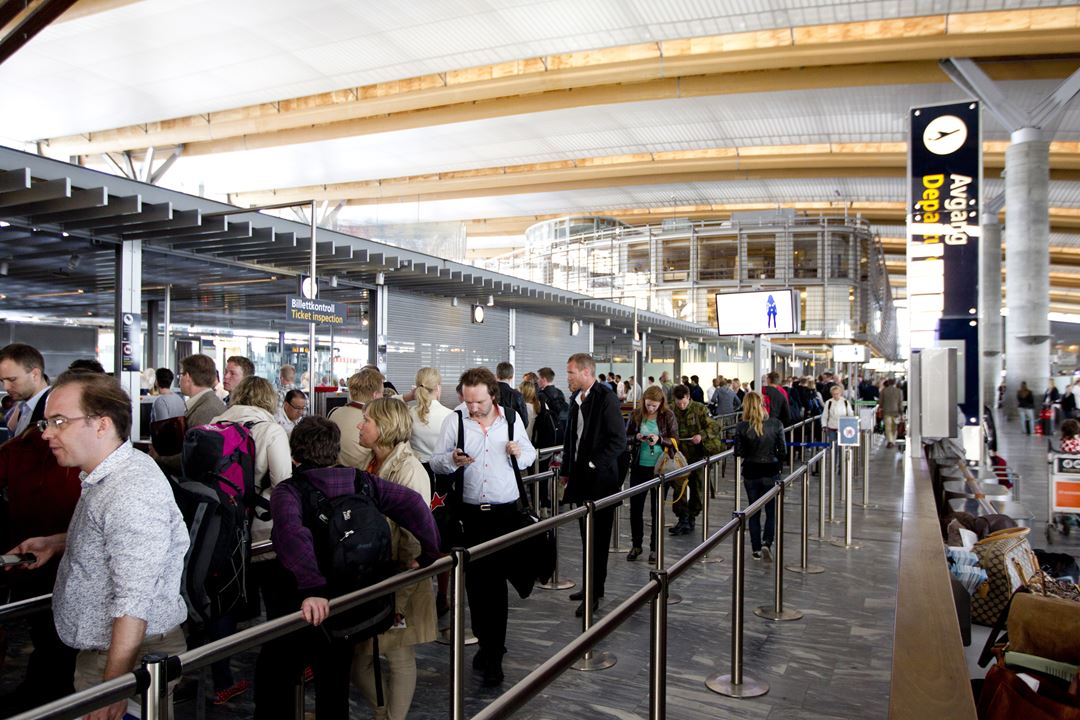Current security control procedures at Værnes Airport use two infra-red thermal imaging cameras and strategically located optical sensors to provide an estimate of how long the queue will take to pass.
Researchers at SINTEF ICT have been working with the video surveillance company Detec AS to develop a passenger counter using these sensors.
Bluetooth turned off
These counters provide results that are more accurate than systems based on Bluetooth and WiFi. This is partly because many people often turn off these services in order to save power. Surveys have shown that less than 30 per cent of people have one or both of these services turned on.
Soft video surveillance
At Værnes, two infra-red thermal imaging cameras and strategically located optical sensors provide an estimate as to how long people will spend in the queue.
"The system, installed at Værnes in December 2013, is a soft type of video surveillance, from which personal identities are erased. You can view people's body temperature, but no other details", says Asbjørn Berge of SINTEF.
Learning about the flow of people
As most of us know, queues at airports are arranged in mazes using retractable ribbon barriers. Security personnel adjust the barriers according to the size of the queue, and the system automatically learns how the flow of people moves. This is then used to give an estimate of how long it takes for the queue to pass through security.
For several decades, SINTEF researchers have been working with Detec AS to develop advanced video analysis software that can be used to detect undesirable or threatening activity in crowds of people, or to secure special areas automatically.
FACTS:
• SINTEF and the video surveillance company Detec have developed a new passenger counter.
• The counter calculates queues and how long it takes for them to pass through security.
• The project at Værnes has been developed in close co-operation with Værnes Airport and the local security company Bravida Norge AS.


